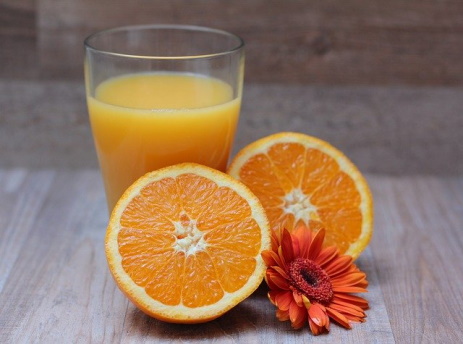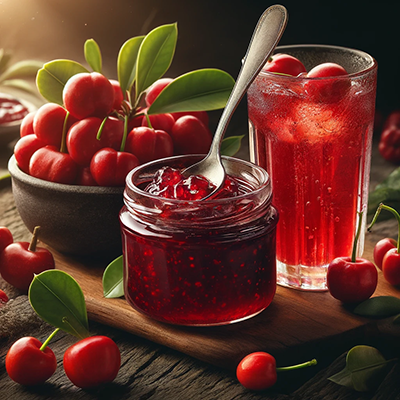This article will teach you about the many foods that fight infection. Throughout life, the body is in a constant battle against pathogenic microorganisms and foreign substances that attack it, which are called antigens.
Related reading:
- Browse more Foods articles: https://naturalhealthmessage.com/nutrition/foods/
- Infectious Diseases guides: https://naturalhealthmessage.com/conditions/infectious-diseases/
- Supplements & reviews: https://naturalhealthmessage.com/supplements/

The combination of tissues and cells responsible for defending the body from these antigens is referred to as the immune system. There are foods that fight infection in the body, particularly because they:
- Improve the function of the immune system: the healthy functioning of this complex defense system against infectious agents and foreign substances requires specific nutrients:
- Proteins,
- Antioxidant vitamins (A, C, and E)
- Trace elements such as iron, selenium, zinc, and copper.
These nutrients must be included in the diet of those suffering from infection.
- It contains antibiotic substances: These foods help the immune system combat infectious agents.
- Promote the purification of the body: They are foods that increase the elimination of waste products through the kidneys, the liver, and the skin. The best foods that fight infection are listed below.
Foods That Fight Infection

ACEROLA: When it comes to immune-boosting foods, this fruit tops the list thanks to its elevated doses of vitamin C, which increases the production of interferon, a protein that inhibits the spread of viruses and stimulates the immune system and halts the growth of normal cells.
Because of these properties, the acerola is highly recommended for all types of infectious diseases, particularly those of viral origin (flu, colds, etc.), and as a complement to the prevention and treatment of cancer.
BORAGE: A great addition to the list of foods that fight infections, it is recommended particularly in these instances:

- Viral infections include flu and eruptions accompanied by fever (measles, German measles, etc.). Borage facilitates the elimination of blood impurities through urine and perspiration, aids rehydration, provides mineral salts, and helps reduce fever.
- Upper respiratory infections, such as colds, pharyngitis, and bronchitis, are treated with this medication. It soothes the mucosa and facilitates expectoration.
- Intestinal infections: Highly recommended as a first solid food in cases of gastroenteritis and colitis.
- Because of its diuretic and purifying action, it treats renal disorders (nephritis, kidney stones), gout, arthritis, and obesity.
KIWI: This fruit stimulates the immune system because of its vitamin C content, potentiated by many other vitamins and minerals, making it much more effective than pharmaceutical preparations. Although kiwis are a winter fruit and can be stored quite easily for weeks or months in the refrigerator, they are a great addition to the list of natural foods that fight infections because they’re beneficial in preventing colds and flu.
Vitamin C does not destroy viruses or prevent flu. However, it strengthens the body’s resistance and helps mitigate the disease’s effect, making it less severe and shorter. Eating kiwis regularly (once a day, at least) benefits anyone suffering from any infectious disease, whether in the acute phase or recovery.
LITCHI: Litchis are highly recommended in cases of infectious diseases as a complement to a specific treatment. Additionally, eating litchis regularly stimulates the immune system and helps prevent disease.
ORANGE: Although this fruit needs no introduction, it is still the most recognized and known food that fights infection. Oranges should always be a part of the diet of anyone with an infectious disease or those who wish to avoid them. Studies show that at least four oranges daily (about 250 mg of vitamin C) are needed to achieve results. It is important to note that vitamin C or eating oranges cannot prevent colds or flu. However, they have been proven to shorten the length of the disease and reduce the severity of symptoms.
Oranges have the following effects on infections, thanks to the combination of vitamin C and the other natural chemical substances they contain:
- They increase the disease-fighting capabilities of the white blood cells.
- They increase the number and longevity of white blood cells. This is attributed to the combined effect of folic acid and vitamin C.
- They slow but do not completely halt the development of viruses within human cells. The orange flavonoids and vitamin C are responsible for this action.
- They increase the production of interferon, an antiviral protein produced within the body itself.
Thus, eating oranges daily is indicated for colds and flu, as well as any type of infectious disease, including those associated with childhood and even AIDS.
Health Disclaimer: The information on this website is for educational uses only and is not a substitute for professional medical advice. Always consult an authorized healthcare provider for any health concerns before using any herbal or natural remedy. We do not establish, treat, cure, or prevent any disease. Reliance on any material from this website is solely at your own risk. We are not responsible for any adverse effects resulting from the use of information or products mentioned on this website.
REFERENCES
- George D. Pamplona-Roger, M.D. “Encyclopedia Of Foods and Their Healing Power.” George D. Pamplona-Roger, M.D. Encyclopedia Of Foods and Their Healing Power. Trans. Annette Melgosa. Vol. 2. Chai Wan: Editorial Safeliz, 2005.348, 367, 358, 357, 366, 362-363.
- UC Health: You Are What You Eat: Choose Foods that Boost Immunity and Fight Infection https://www.uchealth.com/en/media-room/covid-19/boost-immunity-with-food
- Healthline: 15 Foods That Boost the Immune System: Citrus, Bell Peppers & More https://www.healthline.com/health/food-nutrition/foods-that-boost-the-immune-system
- Nutrition and Immunity: The Nutrition Source | Harvard T.H. Chan School of Public Health https://www.hsph.harvard.edu/nutritionsource/nutrition-and-immunity
- Vitamin D: Martineau AR, Jolliffe DA, Hooper RL, et al. Vitamin D supplementation to prevent acute respiratory tract infections: systematic review and meta-analysis of individual participant data. BMJ. 2017;356:i6583.
- Zinc: Wessels I, Maywald M, Rink L. Zinc as a Gatekeeper of Immune Function. Nutrients. 2017;9(12):1286.
- Selenium: Avery JC, Hoffmann PR. Selenium, Selenoproteins, and Immunity. Nutrients. 2018;10(9):1203.
- Vitamin C: Carr AC, Maggini S. Vitamin C and Immune Function. Nutrients. 2017;9(11):1211.
- Gut Microbiome: Zheng D, Liwinski T, Elinav E. Interaction between microbiota and immunity in health and disease. Cell Res. 2020;30(6):492-506.
- Antibiotic Resistance: CDC: Antibiotic Resistance Threats in the United States, 2019 https://www.cdc.gov/drugresistance/pdf/threats-report/2019-ar-threats-report-508.pdf
